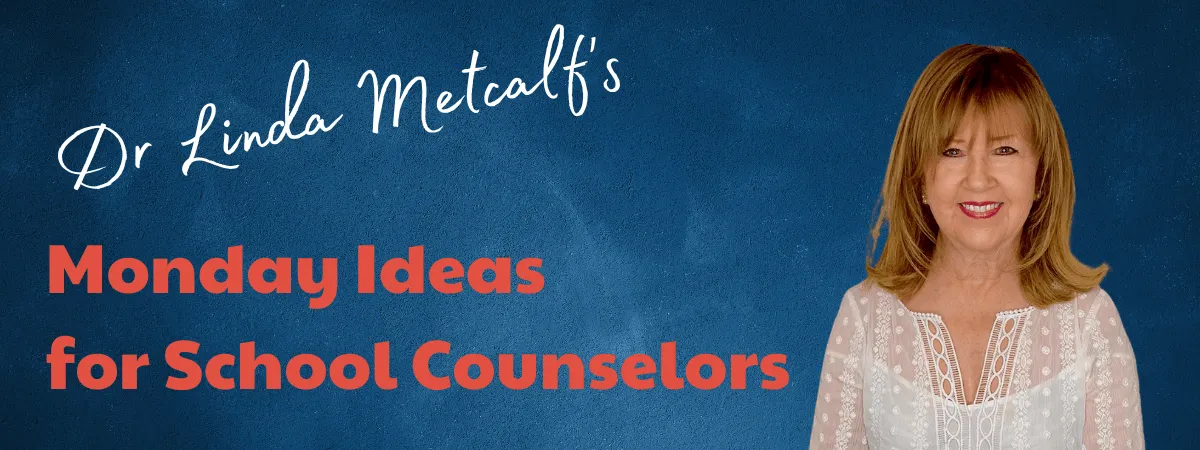
Monday Ideas for School Counselors
Weekly articles for school counselors with ideas on how to resolve typical school situations with students, teachers and parents using the solution focused approach.

Desperate for Solutions? Keep an Eye Out for Exception
I remember the fourth grade student well. His parents divorced and his dad got custody. It was tough for the child, as mom, who had been accused of child abuse, recently moved several states away and had little contact with him.
The father did his best to assure the boy that he was safe and loved, yet every morning, the boy would cling to his dad’s pant leg when the dad walked him to class. It usually took two people to help the boy let go of his dad and after that, a tantrum developed that disturbed several classes.
After a few weeks of continuous disturbance, especially in the morning classes, the student was sent to an alternative school campus. There, he was dropped off at the school each day by his dad and escorted to the school by a teacher. The classes were small. He got lots of attention, and his tantrums ceased after a couple of weeks. The rest of his time went well. He made friends and was able to make up all of the work he had missed out on in his other school, due to the tantrums.
But then, the six weeks were over, and it was time to go back to his home campus.
Everyone was concerned about the behaviors reoccurring. So, a meeting was held to brainstorm ways to help the student re-enter. I listened as the usual ideas were discussed such as boundary setting, consequences, etc. While well-intentioned, I recognized that we were forgetting to check out the obvious: he did well at the alternative school.
LM: So, let’s think about what worked well at the alternative school.
Teacher 1: He got attention, lots of it.
Teacher 2: It was quiet because there were fewer students, which will be hard here.
Teacher 3: He made friends… that was new… his classmates didn’t like him here.
School Counselor: His dad didn’t walk him into school - he had to do it on his own - or with another teacher.
These were the beginning comments that led us to a plan:
When the student returned, dad would be asked to stay in the car and the student’s music teacher would meet the student at the curb. She would then walk the student into school where he would start his day in the ISS classroom, where there were fewer students. He would then transition to his regular class after lunch.
The teachers agreed that he needed more one on one attention so they each talked about taking him to lunch with them occasionally to just chat and inviting him to help out when they needed an errand, provided he behaved well that morning. He would be told about the opportunity to help by the teacher.
In the classroom, he would be put into groups of students who tended to be friendly. The school counselor would also place him in a friendship group that she had in progress.
Everyone agreed that when he had a good day, they would write a short note to his dad with compliments.
The student returned and met with his teachers that first morning, where they all shared their ideas on how they would make school go well for him. The student was surprised yet showed delight in their ideas, especially eating lunch with the teachers!
The behaviors never occurred again at the home campus!
Exceptions are times when behaviors or situations occur less, or not at all. Sometimes exceptions are hard to see, especially when negative behaviors occur. In this case, we observed the following exceptions:
times when the concerning behaviors occurred less - what was different?
times when the student was more engaged - how did that happen?
times when a student does better academically - what lessons or teaching methods worked?
times when tantrums occur less - what was different?
Solution building is much more efficient when we watch out for exceptions and use them in our plan to help students. This week, when you are stuck or, asked to solve another problem, instead of thinking YOU must come up with it, ask those who are concerned:
Tell me times when things go better? When else?
X10
The results will be exceptional.

Practical tools and strategies for school counselors to help students achieve their goals
Practical tools and strategies for school counselors to help students achieve their goals
© 2026 Solution Focused Schools Unlimited LLC


